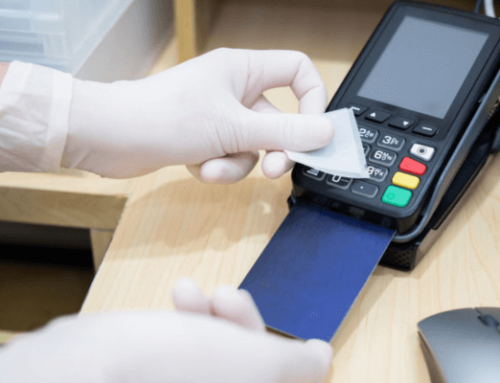When, in 1946, American scientists linked to the Army created the world's first computer, they could not have imagined the impact that this machine, weighing 30 tonnes and powered by punch cards, would have on the lives of billions of people over the following decades.
With the birth of computers, the internet and, later, smartphones, everything became simpler. This inexorable technological advance led to the emergence of mobile applications, better known as apps. Aimed at making it easier to carry out specific activities, they quickly won over smartphone users and brought more convenience to people's daily lives.
When we're still exploring the full potential of apps, a new word appears in our lexicon: Super-Apps.

What is a Super-App?
We all know the potential of apps like WhatsApp, Skype, Instagram or Uber. Each one has a very particular function. Now let's imagine that, among other things, we were able to bring together social networks in a single application, payment methodstraders and loyalty programmes. This ability to bring together, under a single application, functionalities from the most diverse areas in order to accommodate virtually all aspects of consumers' lives is what is known as a Super-App.
The first and one of the most important on the market is WeChat. Born in 2011, this Chinese application has won over millions of users in the Middle Kingdom who use it not only as a means of communication or entertainment, but also, and above all, as a business platform.
By using contactless technologyThese super-apps offer consumers a virtually seamless shopping and payment experience. With a simple tap on the smartphone screen, we can, among other things, buy food, make a reservation, call a taxi or make a payment without leaving the same application.
Born as simple food delivery apps or payment centres, these Super-Apps have "grown up" and become, if you'll pardon the analogy, a huge shopping centre where, between two conversations and a coffee, you can buy and sell literally anything.
Although particularly rooted in Asia, these mobile commerce and communication super-applications are spreading all over the world, gaining tremendous momentum this year with the unprecedented consumer demand for e-commerce. In Portugal, for example, consumer migration to e-commerce meant that online retail shop turnover rose by 241% in April compared to the same month in 2019.
This growth was also reflected in the number of traders who joined online payment methods. REDUNIQ, during the months of compulsory confinement, saw applications for membership of its online payment solutions such as REDUNIQ@Payments or the E-Commerce recorded growth of 333% compared to 2019. In fact, given the complexity of the moment and the positive invasion of the online universe by businesses, the brand has added to the @Payments a feature that allows merchants, even if they don't have a digital shop, to send links to payment by WhatsApp or SMS to your customers.
For those who don't have a website, REDUNIQ has partnerships with companies specialising in e-commerce platforms that offer online shops prepared to integrate the e-commerce payment solutions of the brand.
The truth is that, despite being a phenomenon in deep expansion, the Western world is still taking its first steps into the world of Super-Apps, as it is only now that giants such as Facebook, Uber or Amazon have started to make inroads into the development of broader "ecosystems" built on their main services.
Regardless of the stage of evolution, Super-Apps are a reality and are changing the way consumers shop, talk, eat, travel, entertain themselves and pay around the world. Given the global increase in super-apps and their importance to commerce, there are four key points that merchants should bear in mind.
4 key points about Super-Apps
1 - A growing social/commercial ecosystem
The era of one application for ordering and another for payment is coming to an end. Super-Apps unify the customer's shopping experience and simplify every aspect of the transaction. From search to purchase to payment, the customer doesn't need to leave the app, which ends up minimise the risk of "virtual cart" abandonment before the acquisition is finalised.
Social networks are a central component of most of these super apps. By bringing together payment and e-commerce platforms in a single ecosystem, these apps have the ability to not only create meeting points for merchants from different lines of business, but also serve as a privileged channel of communication with a wider range of consumers.
This integration allows restaurants, for example, to connect with payment servicesIt is also possible to make deliveries and bookings without the consumer having to switch between different apps or load them onto their smartphone.
These Super-Apps don't stop at the online world. Retailers who have both online and physical shops can use these apps in a symbiotic way, as is already the case with large retailers such as Carrefour or the Auchan group.
2 - A powerful marketing tool
Thanks to the use of AI (artificial intelligence) to manage purchase orders, offers, discounts and delivery options, Super-Apps incorporated into mobile platforms (smartphones) can provide significant leverage in terms of marketing.
What's more, because they use QR codes (a two-dimensional barcode that can be easily scanned using a smartphone and can be converted into a text, URL address, SMS, etc.), these super-applications accommodate significantly more information about the customer compared to other types of application, which gives merchants more opportunities to carry out marketing and cross-selling.
In addition to these advantages, these Super-Apps incorporate sophisticated loyalty programmes which, going beyond the traditional "points and rewards" approach, create more personalised marketing models that result in greater customer engagement with the brand or product.
3 - Payment efficiency
Taking advantage of the best banking institutions and payment intermediaries have to offer, these super-applications provide simplified transactions that result in an easier and more efficient purchasing process that guarantees a frictionless check-out and higher sales.
By combining the excellence of the best online payment systems and the most innovative e-commerce platforms, Super-Apps offer consumers a multifunctional product that is a value proposition that goes far beyond payments. Once again, the idea of a "shopping centre" comes to mind, because once the app has been downloaded, the consumer feels that they will find everything they need in it.
4- Dilemmas
Despite all the advantages listed, Super-Apps raise some concerns. Anti-competitive practices, customer privacy and the potential favouritism of one merchant over another should suggest a cautious approach.
Designed to make the most of the potential of a smartphone with an Internet connection, these apps can, however, direct consumers to specific traders or services, ultimately sidelining free competition. Experts warn: The focus on accessibility and convenience can come at the expense of competition.
Another of the "dilemmas" is the possible loss of control over the business that many merchants can experience. By being connected to a platform that brings together all the services (social media, payments, marketing, etc), in this case the Super-App, merchants may find themselves limited in their future business strategy and discover that parts of their business are out of their control.
The resources offered by a Super-App are attractive, but the preference of traders is still based on control of their market and the desire to communicate directly with their customers.
Conclusion
Between advantages and dilemmas, reality shows us an exponential growth in the development and offer of Super-Apps. Large companies such as Facebook, Uber, Amazon or Google are moving in this direction and, with an ever-increasing number of payment providersWith broadcasters and global networks taking an interest in the attractions of these "macro" applications, the future can expect a veritable flood of Super-Apps to invade the market.
Likewise, 2020 has "created" a consumer interested in exploring the potential of alternative means of purchasing such as e-commerce and in making payments online or via the internet. contactless technology. These trends in consumption (e-commerce) and payment (online and contactless) in addition to greater global competition are the favourite food of these Super-Apps.
Sculpted according to consumer habits and incessant in their search for new technological developments and partners that add value to their proposals, these applications have the ability to adapt quickly and continuously not only to the consumer, but also to society as a whole.
* Article adapted from Discover® Global Network.


